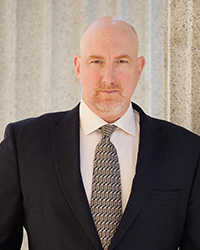
By: Attorney Richard J. Reade, Reade Law Firm, 3 Essex Green Dr., Suite 2, Peabody, MA 01960, (978) 767-4667
Hardly sleeping the night before a hearing and then feeling like your stomach is about to leap out of your mouth as you enter the courtroom are experiences shared among most litigators. Even Gerry Spence, whose Trial Lawyers College I was lucky enough to attend for three weeks one summer, felt like he was going to vomit every time he stepped in front of a judge or a jury. “It’s because you care,” he would say. No amount of caring or preparation can help you anticipate or predict what any judge will do. Invariably something comes up during the hearing that neither of the parties or their attorneys anticipated. The same judge could render different decisions based upon the same facts on different days. The results can leave the parties and their attorneys scratching their heads, wondering if the Court heard any of their arguments, or read any of the pleadings. This is inevitable in an adversarial system, in which the goal is to win.
Judges are exceptional people. They handle hundreds or thousands of cases and try to devote to each case the attention necessary to render justice. But they are human, and are accordingly fickle and unpredictable. That feeling of helplessness the parties and attorneys feel when walking into a courtroom is a realization that you are about to give up any control you had over the matter to one person who will never know the facts of your case as well as you or your adversary or the parties.
There are other options. With Collaborative Practice, the power of control remains with the clients. Collaboration is defined as: the action of working with someone to produce or create something. In Collaborative Practice, the “with” refers to the group of people who share a common goal. The group most commonly includes the parties and their attorneys, a therapist or mental health professional to help guide them and their myriad emotions through the process, and financial experts who provide information to the parties who will soon find themselves economically independent. The “create” refers to the Separation Agreement, which embodies a win for both sides and their family entire family. The Agreement should be something that will endure, customized for each circumstance and reached through a creative process which is not available to a judge and pressured by tracking orders that require that the case be completed within a certain time frame.
If this is appealing, I encourage you to explore creative practice. Since there is a mental shift from litigation to collaborative, training is required to handle these matters. Training sessions are currently scheduled for September 22, 2022, and will be in-person in Brewster, Massachusetts. Information can be found at: https://massclc.org/civicrm/event/info%3Fid%3D892%26reset%3D1. The more attorneys who handle collaborative matters, the more the general public will become aware of it as an option.


